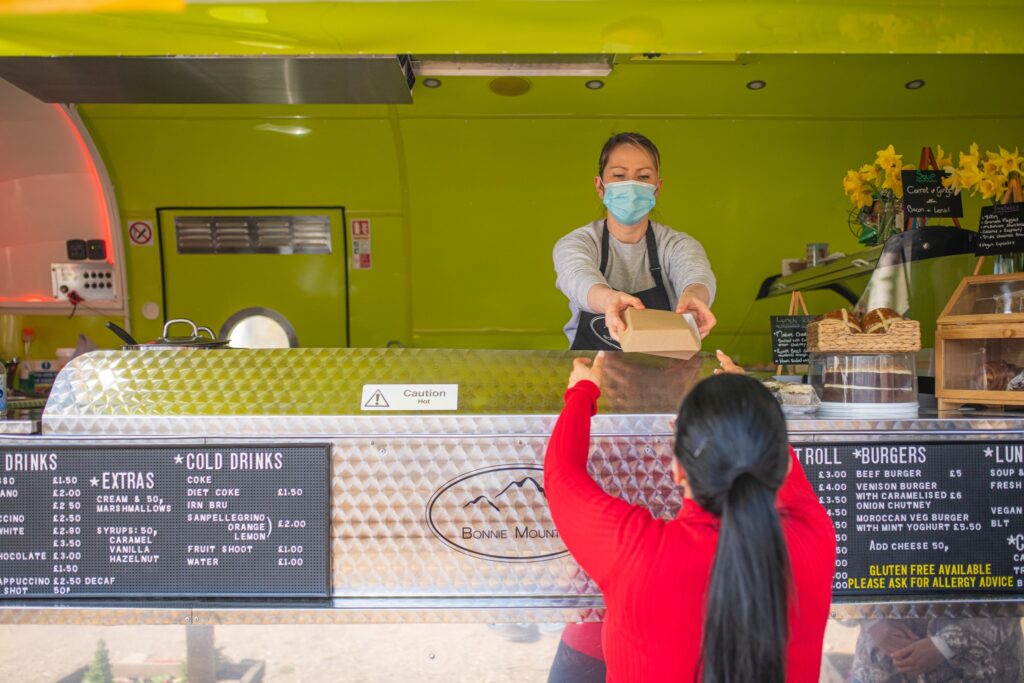THE Scots agritourism sector is benefitting from a growing trend for buying locally sourced food and drink, new research has revealed.
The Scottish Agritourism Growth Tracker 2022, undertaken by VisitScotland on behalf of Scottish Agritourism, found that money generated by farm retail increased by almost £50m during the first year of the pandemic, rising from £62m to over £110m.
VisitScotland say the findings highlight the value and opportunity for Scotland’s farms, rural communities and visitor economy of including a food and drink experience as part of Scotland’s agritourism offering.
Over a third of agritourism businesses are offering food and drink consumption on site.

This can include farm produce enjoyed as part of a holiday on a farm, in a farm café or after a farm tour.
More than half of respondents said they sell their produce online (55%), in an on-farm shop (36%) or via an on-farm honesty box. (29%)
It is believed the boom in farm retail sales is a result of growing awareness of the economical, ethical and environmental benefits of buying directly from local farmers.
Agritourism in Scotland is defined as tourism or leisure on a farm or croft that produces food or offers holiday experiences.
In recent years, particularly during the pandemic, agritourism has become a growing travel trend with visitors seeking out authentic rural experiences that connect them to the countryside and Scotland’s natural larder.
The 2022 tracker was undertaken to monitor the progress and potential of the sector. It found agritourism is currently worth around £60m to the Scottish economy.
Unlike other sectors, agritourism continued to perform well during the pandemic.
The second survey confirmed many of the findings from the first around the unparalleled and wide-ranging benefits of agritourism to Scotland.
It found that as well as the opportunity for strong economic growth, the industry played an important role in sustaining and creating rural jobs and providing equal and inclusive roles for men and women across various ages and skill levels.
The Scottish Agritourism 2030 – The Strategy for Sustainable Growth aims to sustainably develop the rural economy, protect family farms for future generations and celebrate the history and heritage of Scottish communities.
Growing the sales of produce onsite and providing a more comprehensive food experience for visitors is a major ambition of the strategy.
Rural Affairs Secretary Mairi Gougeon said: “I am delighted to see the growing popularity of agritourism.
“It allows consumers to engage directly with producers and learn first-hand how their food is made, while making an important contribution to our rural economies.
“In addition to high quality food and drink, agritourism provides fantastic on-farm experiences and exceptional accommodation offerings that provide attractive alternatives for visitors, as well as diversification opportunities for providers.
“I would like to commend everyone involved in making the sector an increasingly important success story.”
Rob Dickson, VisitScotland Director of Industry and Destination Development, said: “Despite the significant challenges of COVID-19 in 2020/21, this report clearly shows that agritourism continues to draw visitors from far and wide and has developed into popular sector.
“We know that food and drink is an integral part of the visitor experience and this new research demonstrates the wealth of opportunities available to Scotland’s farms to capitalise on this increasing appreciation of locally sourced food and drink, in turn ensuring the sustainable growth of the industry.
“Agritourism is helping address important societal issues such as inclusivity, rural employment and depopulation.
“Its future growth and development offers huge potential for both the agriculture and tourism sectors by creating jobs, helping communities thrive, demonstrating the best in environmental management and contributing to the wider economy.”
Caroline Millar, Sector Lead, Scottish Agritourism, said: “The data from these results was captured from 2020/21, the first year of the pandemic.
“Despite many agritourism businesses being closed for many months, the economic impact of agritourism has stayed at pre-pandemic levels due to the huge demand for farm visits and farm holidays by a very local domestic population.
“This is also borne out in the growth in farm retail in that time with many farmers playing a vital role in providing their communities with local food and drink.
“At the heart of agritourism are farmers and crofters producing food and these results demonstrate that this core offering is very important to our customer base.
“At a time of significant change in agriculture and challenging economic conditions across all sectors in the economy, agritourism is playing a key role in the sustainability of family farms and crofts.
“[It is] creating employment in rural areas and bringing thousands of people into the Scottish countryside and we must remain focused on the long term growth and opportunity for rural Scotland from agritourism.”

